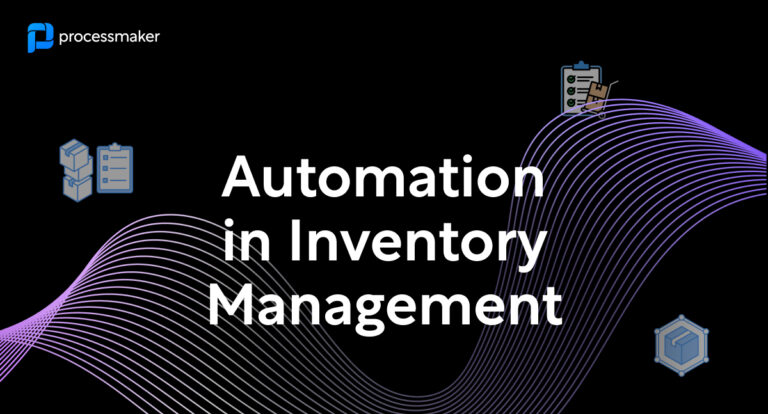Digital transformation, or using technology to drastically improve an enterprise’s performance or reach, is an increasingly widespread strategic initiative for many enterprises today. Higher competition, rapidly evolving technologies, and pressure from consumers are forcing enterprises to operate, promote, and produce with more agility and creativity than ever before. Executives in all industries are innovating digitally in order to get ahead. One powerful way their companies are accelerating their digital transformation is by leveraging social media.
The business value of social media in digital transformation
With 84% of executives relying on social media to make B2B buying decisions, an enterprise cannot afford to ignore the benefits of incorporating social media into digital transformation initiatives. For businesses beginning digital transformation projects or implementing a new strategy, social media can accelerate the success of digital advances in several ways:
- Enhance your customer service strategy. If your company has multiple channels of delivery, chances are you have seen an increasing pressure to make these channel experiences seamless and integrated. By incorporating social media use into digital transformation, you can be sure your strategy stays informed of customer feedback through every touchpoint of the customer journey. Customer service can be enhanced significantly by digital initiatives. An example of prioritizing the customer is American Express, which uses one of their social media platforms to address customer complaints, questions, and other inquiries. By using social media, the company can now respond in rapid time to their customers, who often expect on-the-spot feedback.
- Boost the credibility of your online brand. 90% of B2C purchasing decisions are made by using online reviews. If the majority of your friends are using a new app and the online reviews are positive in the masses, the likelihood of you hopping on the bandwagon is extremely high. Take advantage of the social proof your brand can generate by harnessing social media during new digital advancements, along with maximizing visibility of your progress during the transition.
- Humanize your company. Social media is not all about advertising. TIME suggests following the 80/20 rule by posting 80% of social media posts about the consumers and only 20% on the business. This is a less sales-heavy approach that feels more authentic and approachable. Add a few photos of daily life in the office or including fireside chat-style talks with important stakeholders on industry topics is a great way to give your social media presence a human touch.
- Remain agile to competition and market changes. What better way to stay informed of your competition by looking at their social media? Certain platforms like Twitter provide real-time updates on news, trending topics, and more, giving businesses incredible insight into world perception of their brands, services, and products. Understanding what is changing is important too, as competition increases and the need to be able to adapt quickly to changing user needs is critical to success.
- Elevate your sales growth. Social media vetting is key when weighing purchasing decisions from the C-suite. Platforms like LinkedIn, the number one professional social media network, can open doors to connect with important influencers in your industry. LinkedIn boosts content from trusted sources and offers the ability to send email cadences the same way your company does through email automation software. Social media can help to capture marketing qualified leads that can then be converted to sales down the funnel by your sales teams.
As a company moves toward greater digital transformation, social media can be an effective strategy to improve multiple areas of the business.
Social media as an accelerator
Using social media to increase visibility and brand awareness is not a new concept. The percentage of businesses using social media to grow their business is nearly 90%, indicating that enterprises are well-aware of its positive effects on business to consumer growth.
While social media has been a widely used tool in marketing for some years now, the majority of enterprises aren’t seeing how social media can apply to their overall enterprise growth. Traditionally created and governed by the marketing department, social media is now being used as a vehicle in digital transformation strategy. Sprout Social says that 90% of consumers use social media to directly communicate with their favorite brands, a powerful piece of insight into the opportunity available to enhance customer support through social media.
Altimeter’s Brian Solis shared with TechRepublic that his company was “shifting from a ‘digital’-focused approach toward digital transformation to one where digital is an enabler for purposeful enterprise-wide transformation and innovation.” Many companies are echoing the same sentiment in their digital advances. Being customer-centric is the highest priority for those taking advantage of digital tech in their growth strategy, understanding that there is a serious demand for omnipresent, real-time customer experience.
Digital leaders must track emerging tech trends and assess where those technologies could have the greatest impact and ROI on overall business, said the latest State of Digital Transformation report. Delivering top-notch customer service on every touchpoint of the customer journey be a major asset of using social media. Social media, while not an inclusive digital strategy on its own in transformation efforts, is a critical one to drive digital transformation success overall across the enterprise.
Invest in today for a better tomorrow
In today’s market, extending social media’s potential outside of just the realm of marketing is a must. Social media’s ability to transform businesses digitally from the inside out is vast, with potential to elevate customer experience, inform new digital growth strategies, and increase credibility in both B2B and B2C audiences, as well as nurture prospects for future sales.
Digital transformation is not an option to compete in the current market landscape. Is your company equipped with the best resources to achieve full efficiency?
Learn more about how we help organizations with their digital transformation goals at www.processmaker.com.
About ProcessMaker:
ProcessMaker is a low-code business process management and workflow software. ProcessMaker makes it easy for business analysts to collaborate with IT to automate complex business processes connecting people and existing company systems. Headquartered in Durham, North Carolina in the United States, ProcessMaker has a partner network spread across 35 countries on five continents. Hundreds of commercial customers, including many Fortune 100 companies, rely on ProcessMaker to digitally transform their core business processes, enabling faster decision making, improved compliance, and better performance.





